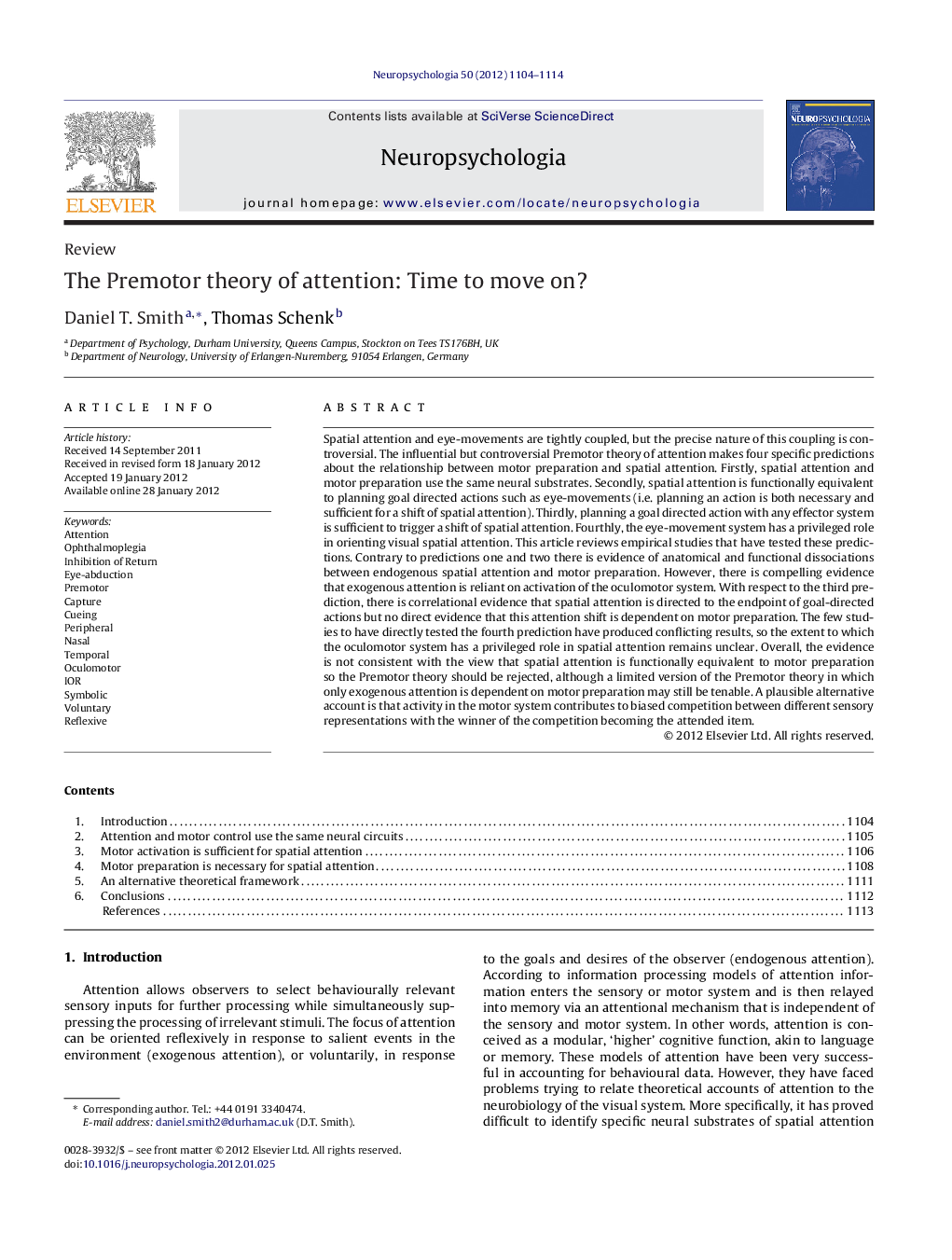| کد مقاله | کد نشریه | سال انتشار | مقاله انگلیسی | نسخه تمام متن |
|---|---|---|---|---|
| 944841 | 925719 | 2012 | 11 صفحه PDF | دانلود رایگان |

Spatial attention and eye-movements are tightly coupled, but the precise nature of this coupling is controversial. The influential but controversial Premotor theory of attention makes four specific predictions about the relationship between motor preparation and spatial attention. Firstly, spatial attention and motor preparation use the same neural substrates. Secondly, spatial attention is functionally equivalent to planning goal directed actions such as eye-movements (i.e. planning an action is both necessary and sufficient for a shift of spatial attention). Thirdly, planning a goal directed action with any effector system is sufficient to trigger a shift of spatial attention. Fourthly, the eye-movement system has a privileged role in orienting visual spatial attention. This article reviews empirical studies that have tested these predictions. Contrary to predictions one and two there is evidence of anatomical and functional dissociations between endogenous spatial attention and motor preparation. However, there is compelling evidence that exogenous attention is reliant on activation of the oculomotor system. With respect to the third prediction, there is correlational evidence that spatial attention is directed to the endpoint of goal-directed actions but no direct evidence that this attention shift is dependent on motor preparation. The few studies to have directly tested the fourth prediction have produced conflicting results, so the extent to which the oculomotor system has a privileged role in spatial attention remains unclear. Overall, the evidence is not consistent with the view that spatial attention is functionally equivalent to motor preparation so the Premotor theory should be rejected, although a limited version of the Premotor theory in which only exogenous attention is dependent on motor preparation may still be tenable. A plausible alternative account is that activity in the motor system contributes to biased competition between different sensory representations with the winner of the competition becoming the attended item.
► We review evidence for the Premotor theory of attention.
► Contrary to Premotor theory, compelling converging evidence indicates that endogenous attention and motor control are independent.
► There is reliable evidence that exogenous attention is dependant on oculomotor control.
► Premotor theory is not consistent with empirical data and should be rejected.
Journal: Neuropsychologia - Volume 50, Issue 6, May 2012, Pages 1104–1114